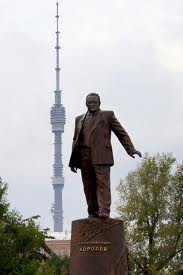(CNN) — There is a consistent message on Russian state media concerning the situation in Ukraine. The revolving "crisis in Ukraine" bug on state news channel Rossiya 24 sums it up.
It shows the players on the ground on a loop: 1) unmasked, kindly looking pro-Russian separatists against the background of the orange and black ribbon of St. George, the ubiquitous symbol of pro-Russian sentiment and of Soviet military glory, 2) masked, authoritarian-looking Ukrainian state security against the national flag, and 3) a balaclava-clad ultra-nationalist against the red and black flag of Ukraine's Pravvy Sektor (Right Sector) party — the ultimate bogeyman of the conflict, as far as Russia is concerned.
It's all part of the Kremlin narrative that Ukraine is at risk of a fascist takeover.
"Fascist is now being used to designate all things obnoxious and bad in the Kremlin line of argument so you call fascists those who allegedly seek to oppress the Russian speaking population in Ukraine," says Moscow based political analyst Mikhail Troitsky. "And in Russia domestically you have this tendency of anyone who disagrees with the main line to be called a fascist."
Media fates and fortunes
This talk, Troitsky says, is all part of a broader notion of patriotism, carefully honed across state media, which tapped into a swelling of national pride over the Sochi Olympics and kept its momentum through Russia's annexation of Crimea. It is a redefining of boundaries many Russians feel was a historical injustice made right, the return of the peninsula to the motherland.
In this climate, some, like the editor in chief of Dozhd TV, feel they face unusually strong hounding if deemed unpatriotic. Dozhd TV — one of Russia's few independent media outlets — was dropped by most cable operators a few weeks ago after a poll it ran in a talk show. […]
See the full article and video "Russian media on Ukraine — does Kremlin control the autocue?" © CNN









